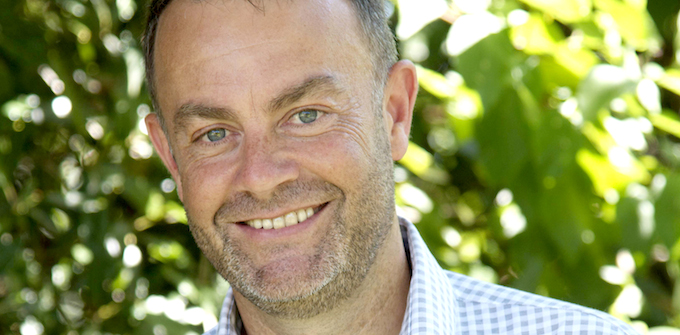
Many Rivers chief executive John Burn
Not-for-profit organisation Many Rivers, which works with small business owners in Australia’s most remote communities, has helped set up more than 1000 small businesses around the country in the space of seven years.
Many Rivers works with entrepreneurs across regional Australia to help them get ventures off the ground.
With operations in some of Australia’s most remote towns where jobs are scarce, the ability to set up and grow enterprises is critical, says Many Rivers chief executive John Burn.
“We have a focus on working with people in disadvantaged contexts,” Burn told SmartCompany.
Many Rivers works in partnership with large corporates such as Westpac, which has helped it provide nearly $6 million in micro-finance loans to help regional small business owners since 2009.
Speaking at the recent Garma Festival in Northern Territory, Westpac chief executive David Linberg said the model is creating long-term change in these communities.
“Inclusion is particularly important in regional and remote Australia,” said Linberg.
“We have chosen to partner with Many Rivers because it has made tangible differences to the lives of many people who are now self-employed and creating new jobs for others.”
Westpac recently invested $2.25 million into Many Rivers to help it expand its reach across Australia.
Over the past year, Many Rivers has grown from 14 sites to 25.
“We put people on the ground around the country and they stay there for multiple years and become part of the community, working alongside clients to start businesses,” Burn says.
“We typically work with a client for several years.”
The first six months with clients focus on developing a functioning business plan and setting up a venture that generates real revenue.
“The field officer will sit down with the client for several conversations over a number of weeks,” Burn says
During this time, clients will work with Many Rivers to turn their ideas into businesses by figuring out what their aims are, if there’s actual demand for their product or service and doing market research.
“The business plan will look like a to-do list,” says Burn.
“It’s also to work out if the person has a real business idea.”
Once these ventures start generating income, Many Rivers can help the ventures get to the next growth stage with micro-financing.
“Access to finance is highly restricted, particularly for those in disadvantaged backgrounds,” says Burn.
“Some local government regulations can restrict somebody’s ability to run a home-based business.”
In addition to this, approval for bank loans requiring credit checks and long-term business performance further increases the barriers for many entrepreneurs living in outer Australia.
To ensure they don’t get held back, Burn says Many Rivers injects small amounts of cash into ventures so owners can invest in resources, equipment and other tools to get the business to the next level.
In the past year, Many Rivers has used micro-financing to back more than 200 businesses with loans of $5000 on average.
Last year, he says the organisation lent $1.3 million.
Burns says a recent review by Deloitte Access Economics found that nearly 80% of the businesses Many Rivers has helped set up, survive their first year.
This excludes a further 6% where the owners close down to enter other employment.
“60% make their second anniversary,” he says.
“45% make their third anniversary.
“This is higher than the Australian average for business survival.”
Increasing visibility of Australia’s remote small business sector
One of the biggest challenges small business owners in remote Australia face is visibility, says Burn.
“If you’re living in a remote community in Australia you need to access the mainstream economy,” he says.
“People up in East Arnhem Land will find it difficult to see into Melbourne and Sydney, and people in Melbourne and Sydney can’t see into those communities.”
This means consumers and regional entrepreneurs struggle to connect, Burn says.
“We can actually bring those two things together,” he says.
With people also working on the ground in metropolitan and regional Australia, Burns says Many Rivers is finding ways to address issues like these to create greater opportunity for remote and regional entrepreneurs to access the broader market.
Recently, Burn says Many Rivers set up a pop-up shop on the ground floor of Westpac’s head office.
“We sold about $3000 worth of client products,” he says.
In upcoming months, Many Rivers be looking to run more of these pop-up events to further promote the businesses they work with.
“We’ve demonstrated that the mainstream economy are interested in buying those products,” he says.


COMMENTS
SmartCompany is committed to hosting lively discussions. Help us keep the conversation useful, interesting and welcoming. We aim to publish comments quickly in the interest of promoting robust conversation, but we’re a small team and we deploy filters to protect against legal risk. Occasionally your comment may be held up while it is being reviewed, but we’re working as fast as we can to keep the conversation rolling.
The SmartCompany comment section is members-only content. Please subscribe to leave a comment.
The SmartCompany comment section is members-only content. Please login to leave a comment.